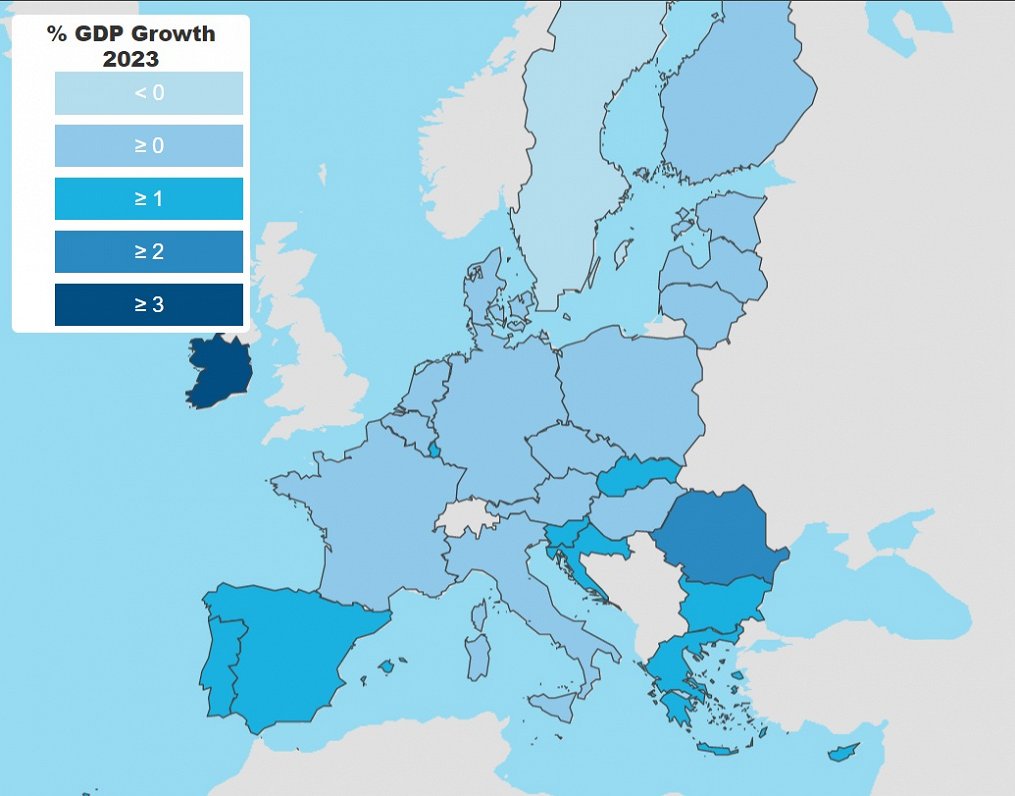In 2023 gross domestic product (GDP) will rise by 0.8% across the European Union as a whole and 0.9% in the euro area Euro area, while in Latvia growth will be only 0.1%, according to the EC's Winter 2023 Economic Forecast.
In 2024, GDP is expected to grow by 1.6% in the European Union, and by 1.5% in the euro area, while in Latvia growth will rebound somewhat to 2.7%.

"Growth is expected to remain lacklustre at the start of 2023 [in Latvia]," said the EC. "Thereafter, with inflation moderating, domestic consumption is set to pick up. Additionally, EU funded investments, including those financed by the RRF, are projected to pick up, providing a further boost to economic growth in the second half of 2023. However, given the decline in activity in second half of 2022 and, hence, the negative carry-over, yearly growth in 2023 is expected to be almost flat."
As far as inflation is concerned, Latvia will continue to experience considerably higher inflation than elsewhere in the EU. The EC expects to see 6.4% price growth in the EU and 5.6% in the eurozone this year (7.9% in Latvia), while in 2024, inflation is forecast to decline to 2.8% (EU), 2.5% (euro area) and 1.5% (Latvia).
"Consumer price inflation increased rapidly throughout [2022] and averaged at 17.2% in 2022. It appears to have peaked in the third quarter of 2022. Energy prices are set to continue slightly declining during 2023, after having peaked in 2022-Q3. In 2023, headline inflation is forecast to remain elevated at 7.9% as the energy price shock works its way through the other inflation components. In 2024, inflation is expected to slow down to 1.5% as energy prices decline somewhat and growth of other prices slows down, except for services inflation, which is set to accelerate as wages partially catch up with the price increase of the past years," said the EC.
"The EU economy beat expectations last year and we have entered 2023 on a firmer footing than anticipated. Yet Europeans still face a difficult period ahead with slowing growth and only gradually easing inflation," said Paolo Gentiloni, Commissioner for Economy.





























